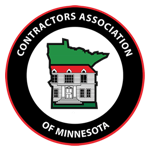Employers in Minnesota must provide earnings statements with certain required information to all employees at the end of each pay period.
Earnings statements are important payroll records for employers and employees that document information about wages paid, hours worked, deductions made and benefits accrued by an employee.
Earnings statements must include at least the following information:
- the name of the employee;
- the total hours worked by the employee in the pay period, unless the worker is considered exempt under the Minnesota Fair Labor Standards Act;
- the rate or rates of pay, including whether the employee is paid by the hour, shift, day, week, salary, piece, commission or other method;
- any allowances claimed for meals or lodging under Minnesota Rules 5200;
- the gross pay earned by the employee in the pay period;
- the net pay after all deductions are made;
- a list of all deductions (taxes, insurance, union dues, other) made from the employee’s pay;
- the date the pay period ended;
- the employer’s legal and operating name;
- the employer’s telephone number; and
- the physical address of the employer’s main office or principal place of business and a mailing address, if different.
In addition, under Minnesota’s earned sick and safe time law, which goes into effect Jan. 1, 2024, employers will be required to include the following additional information on earnings statements:
- the total number of sick and safe time hours available for use by the employee; and
- the total number of sick and safe time hours used by the employee in the pay period.
Contact DOLI for any questions

